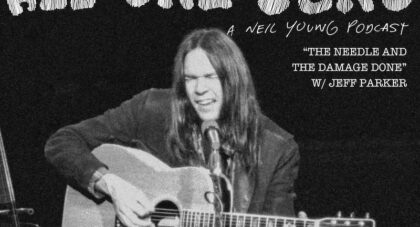Listening to the Roadside Graves forthcoming LP, My Son’s Home, you might draw associations to dusty, cross-country road trips and grainy, lo-fi photography. Paying homage to nearly every piece of Music Americana–folk, alt.country, rock and more–the record indeed sounds like it could’ve been recorded nearly everywhere at once, despite the band’s New York-via-New Jersey roots. So, suggesting that the music or the band is an old car traveling great . . .
Only the good shit. Aquarium Drunkard is powered by its patrons. Keep the servers humming and help us continue doing it by pledging your support.
To continue reading, become a member or log in.


